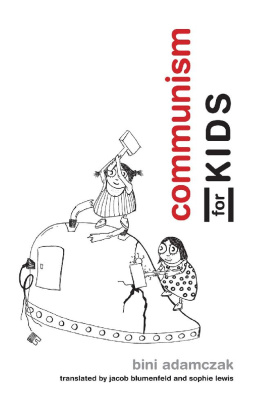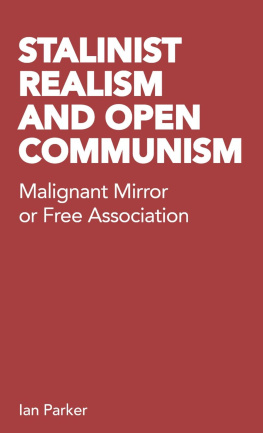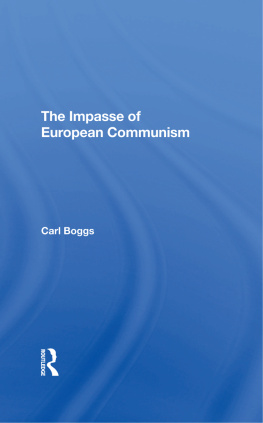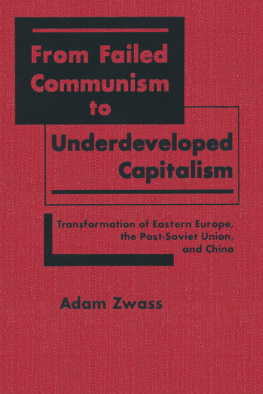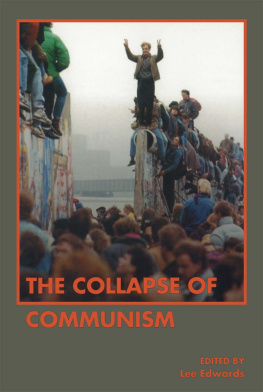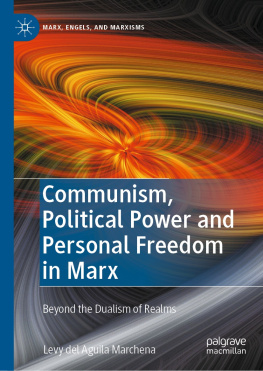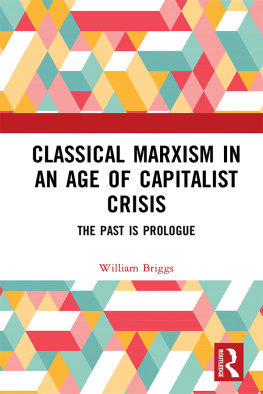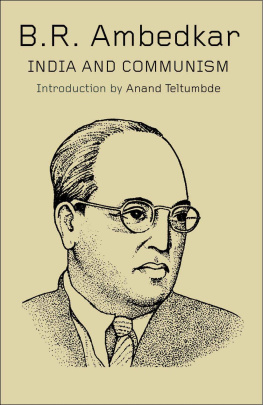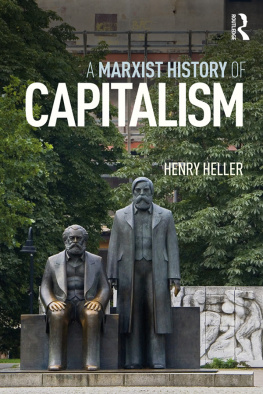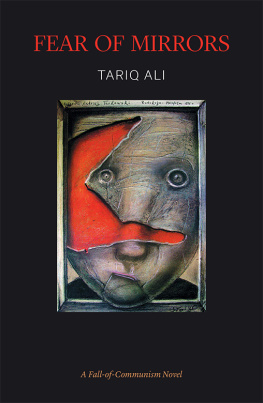communism
for Kids

bini adamczak
translated by jacob blumenfeld and sophie lewis
the mit press | cambridge, massachusetts | london, england
Unrast Verlag 2014
This translation 2017 Massachusetts Institute of Technology
All rights reserved. No part of this book may be reproduced in any form by any electronic or mechanical means (including photocopying, recording, or information storage and retrieval) without permission in writing from the publisher.
This book was set in Helvetica Rounded and Chaparral by The MIT Press. Printed and bound in the United States of America.
Library of Congress Cataloging-in-Publication Data
Names: Adamczak, Bini, author.Title: Communism for kids / Bini Adamczak ; translated by Jacob Blumenfeld and Sophie Lewis.Other titles: Kommunismus. English Description: Cambridge, MA : MIT Press, 2017. | Includes bibliographical references.Identifiers: LCCN 2016032230 | ISBN 9780262533355 (pbk. : alk. paper)Subjects: LCSH: Communism.Classification: LCC HX73 .A3313 2017 | DDC 335.43dc23 LC record available at https://lccn.loc.gov/2016032230
EPUB Version 1.0
what is communism?
Communism names the society that gets rid of all the evils people suffer today in our society under capitalism. There are lots of different ideas about what communism should look like. But if communism means getting rid of all the evils people suffer under capitalism, then the best kind of communism is the one that can get rid of the most evils. Its like curing a disease. If capitalism was a diseasewhich its notthen the best medicine would be the kind of communism that can make people completely well, and not merely one-third or half well. Still, people usually are healthy before they get sick, and medicine just returns them to the way they were at first. Thats not really true with capitalism, because people suffered a lot before it, too, although for different reasons. Thats why the comparison isnt so good. And even if communism is a good remedy, its no cure-all. Its only a remedy for the evils caused by capitalism. If you have a cough and fever, and you take a pill for the cough, then only the cough goes away, not the fever. Communism is kind of like that: it doesnt heal all suffering but rather only the suffering caused by capitalism.
To really understand communism and figure out which idea of it is the best, we have to first understand capitalism and how it makes people suffer.


what is capitalism?
Capitalism exists today all over the world, and its called capitalism because capital rules. This isnt the same as saying that capitalists rule, or that the capitalist class rules. In capitalism, there are certainly people who have more power than others, but there isnt a queen who sits on a throne high above society and commands everybody. So if people no longer rule over society, who does? The answer may sound a little strange. Things do. Of course we dont mean this literally, since things cant do anything, least of all rule people. After all, theyre just things. And not all things have this power; only special things do. Or to put it better, only a special form of things do. These special things dont fall from the sky or come flying down to Earth in UFOs shooting people with laser beams. Theyre just the things that people create to make life easier, to serve them. Strangely, over time, people forget that they made those things, and soon enough, people begin to serve the things!
Imagine this: a girl walks over to a desk and writes down on a piece of paper, Please drink a glass of water. One or two hours later, she wanders by the desk again and finds that piece of paper. As she reads it this time, she forgets that she was the one who wrote it and thinks to herself that she should probably do what the paper says. Maybe shes a bit skeptical at first, so she finds a friend and asks, Do I really have to drink a glass of water right now? Im not even thirsty. The friend answers, I dont know. Here, let me have a look. She reads whats written on the piece of paper and tells the girl, Yep, thats what it says. You have to drink a glass of water. If the girl walks by this piece of paper too often, she would get a terrible bellyache pretty quickly. And thats how she ends up being ruled by things and suffering.
Sure enough, this sounds a bit odd. Why should she suddenly forget that she wrote that sentence? Why would she no longer recognize her own handwriting? In general, reality is a bit more complicated than it appears in this scene. People dont live and work alone but rather in society together. In reality, its never just one person writing down a sentence; its lots of people writing things together. Lets try a different examplethe Ouija board (theres a glass in this one, too). To play the game, a group of people sits in a circle around a board with a glass in the middle. All the letters of the alphabet are written on the board. Everyone puts a hand or finger on the glass, and because everybody is unconsciously trembling a tiny bit, the glass begins to move, as if pushed by an invisible hand, slowly, from one letter to the next. The people dont realize that they moved the glass themselves, because their individual trembling could never have moved it alone. Instead, they think it was a spirit channeling some kind of message through them.
The Ouija board illustrates pretty well how life works under capitalism. As a matter of fact, the people playing the game are pushing the magically moving glass all by themselves, although not one of them could do it alone. The glass moves only because people act together rather than separately. But they dont even notice they are cooperating. Their own cooperation happens secretly, behind their backs, so to speak. If those people instead consciously came together to think collectively about what they actually wanted to write, then the outcome would probably be very different. At least, there wouldnt be any uncertainty about who wrote the text, thats for sure. With the way things stand now, though, the text seems to be written by an invisible hand. And since no one can explain how it happened, they believe it was an alien power, like a spiritor specter.
So you see, its not every kind of cooperation, every kind of group, or every kind of labor that gives things special powers over people. Its only a special kind. The Ouija board fits, but writing collectively does not. Similarly, things dont rule over every society; that only happens in a capitalist society. Only in capitalism do people relate to each other and work together in a way that leads to things ruling people. But whats so special about the relationships between people under capitalism? What distinguishes them from the relationships people have with each other in different societies?
To answer these questions, lets take a look at how capitalism first came about. When we do, well see that capitalism has not always existed (which is already a big plus).


how did capitalism arise?
Capitalism first developed in England around five hundred years ago. At that time, feudalism still ruled, which means there were queens, princesses, and many maids. But most people were peasants. Peasants worked the fields in small village communes or together with their families. Since they had no machines and few inventions, they had to work a ton. Even though they worked so much, they were still poor. Even worse, the church, which was very powerful at that time, demanded every tenth piece of bread the peasants producedand the princesses wanted even more than that! Every so often, the people had to go to the princesses courts and work there for several days. But they always knew exactly how much the rulers were taking away from them. Otherwise, they were pretty much left alone. You see, the princesses understood little about working, and so they couldnt really tell the peasants how to do their work.
Next page
